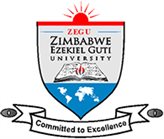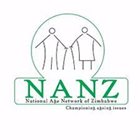About the project
This project focuses on Internally Displaced Persons (IDPs) residing in two informal settlements in Harare, Zimbabwe. Zimbabwe is among the latest countries in the Southern African region to be affected by the Covid-19 pandemic. Whilst the government has responded well to the pandemic, it has also faced a number of challenges. One such challenge is within low-income communities such as informal settlements.
Despite the measures put in place based on public health education as guided by the World Health Organisation (WHO) including hygiene measures, isolation, quarantine, social distancing and the wearing of masks, IDPs are an economically disadvantaged and secluded population, with limited access to the critical public health information and resources necessary to comply with the recommended Covid-19 hygiene standards. Overcrowded conditions, access to clean running water, soap and sanitisers are some of the issues IDP communities face, compounded by a lengthy lockdown that has predisposed IDPs to economic hardships.
Bringing together an interdisciplinary team of three Zimbabwe universities, two UK universities and a local NGO, this impact-oriented project aims to complement the government’s current response to the pandemic by adapting locally developed low cost Covid-19 solutions to fit IDPs’ needs. It also seeks to empower IDPs to make Covid-19 products using locally available resources for use by their households; and develop a transformative public health education for both adults and children to ensure that appropriate Covid-19 information is accessible by the IDP population.
African solutions to African problems
This model can contribute to recovery from this global crisis not only in the context of Zimbabwe and the African region, but also other developing countries as well as the Global North where camp-like institutions (such as refugee camps, detention centres and homelessness) are a focus in the fight to stem the spread of Covid-19.
Aims of the study
This UKRI’s GCRF/Newton funded (GCRF_NF101) aims to:
- identify through research what IDPs know about Covid-19, sources of the knowledge, current preventive and protective measures in place and the gaps
- adapt the recent low cost Covid-19 innovations (for example protective products such as face masks and hygiene products such as sanitisers) developed by the Zimbabwe Ezekiel Guti University (ZEGU) to fit the IDPs context
- develop a Covid-19 transformative public health education programme to be accessed through diverse interactive communication channels (for example radio and television)
- produce a toolkit and provide training through media to empower women to make Covid-19 protective products such as facemasks using locally available material for use by their households
- produce policy briefs and engage relevant government departments to include IDPs in their development plans
To achieve these aims, we plan to:
- Adapt existing innovations for protection against Covid-19 appropriate for context, and develop additional ones
- Empower through entrepreneurship
- Transform Public Health Education around Covid-19
Media coverage in Zimbabwe
Project collaborations and partnerships
Funding
This project is being funded through the UKRI's GCRF/Newton Fund Agile Response For Covid-19.



Research Institutions
The project is a collaboration between academics at:





Project Partner
